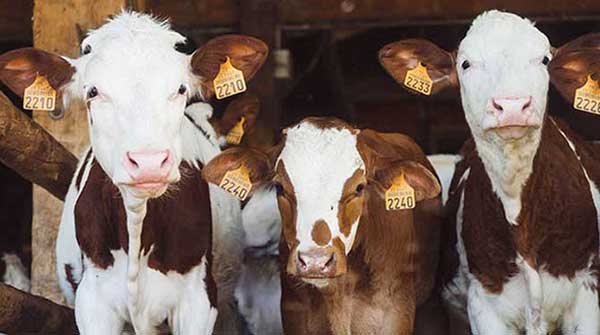 In the recent Munk Debate on foreign policy, all three leaders of the major federal parties rushed to support the status quo on supply management, even though the system penalizes consumers.
In the recent Munk Debate on foreign policy, all three leaders of the major federal parties rushed to support the status quo on supply management, even though the system penalizes consumers.
And in an election with so much sloganeering about household economics and the middle class, surely the manufactured price inflation of universal food staples would be a fruitful talking point.
The cartel system limits imports, controls production, and imposes tariffs in the dairy, poultry and egg industries. Quite apart from the implications of this system on trade, its primary consequence for consumers is to keep prices high – apparently a small concern for the leadership candidates as we head toward the Oct. 19 federal election.
Ironic, then, that the Conservative government’s subsequent announcement of the Trans-Pacific Partnership was replete with language about liberalizing trade barriers to the national benefit. Prime Minister Stephen Harper likened the agreement, advertised as opening Canadian goods to a market of some 800 million consumers, to choosing “a future of participation over isolation.” And yet the Tories have remained steadfast that Canada’s supply management system – a case of government-enforced isolation if there ever was one – will remain intact.
On this point, Harper finds nothing but agreement from his opponents. For Canadians who favour slashing protectionism and freeing trade, there is no contending major party to endorse; rather, they would have to consider voting for the small Libertarian Party, the only one that favours abolition.
This is a sensitive issue and we are in the late stages of a tight election, but it is a shame that the utility and prudence of supply management is not subject to more thorough debate, preferably with one of the major political parties representing the case against. Though this discussion could be had at any time, the advent of the TPP negotiations would serve as a useful pretext.
In the course of the talks, the United States and New Zealand called on Canada to open its dairy market. It is a call that ought to be considered. Likewise, the opportunity to export more Canadian products in the presently-protected sectors is a strong argument for mutual tariff-dropping, which might persuade open minds to the advantages of phasing out the cartels for good.
But the Conservative government effectively closed the door on any meaningful revisions to supply management by promising to attach a five-year plan of multi-billion dollar industry subsidy, to compensate farmers for market-share loss and losses incurred through a small increase in foreign competition. This is apart from the insulation provided by supply management itself.
Yes, it is reasonable that in industries that are accustomed to the present regulatory model, government financial support could be offered to soften the effect of a surge in import competition, if indeed the transition were to open markets. Australia did so when it dismantled supply management for dairy beginning in 2000, and the result was lower milk prices for consumers. But there doesn’t seem to be a transition to an open market on the table here, only tweaks to allow for more duty-free access while keeping the current system in place.
The responsible approach would be to tie any compensation to actual losses, perhaps with additional incentives for farms that invest – in more land, livestock, workers and production – to make themselves, and Canadian industry, more competitive. But this would signal a shift away from the coveted protection model that governs these industries today.
Certainly, by signing on to this deal during an election campaign, the Tories shift the pressure to their opponents, who have to explain why they would not have done so. But it also makes the compensation package a tool of electioneering, indiscernible from the government’s appraisal of its economic necessity. So the danger is not so much that the TPP will become an election issue – as it should – but that the rush to monetarily placate opponents of the agreement will dwarf discussion of the deal itself.
So don’t be surprised if TPP banter is more about protecting producers than weighing the benefits and pitfalls for consumers. And that just shows how entrenched supply management dogma has become.
Jackson Doughart is an independent analyst.
Jackson is a Troy Media contributor. Why aren’t you?
The views, opinions and positions expressed by columnists and contributors are the author’s alone. They do not inherently or expressly reflect the views, opinions and/or positions of our publication.


